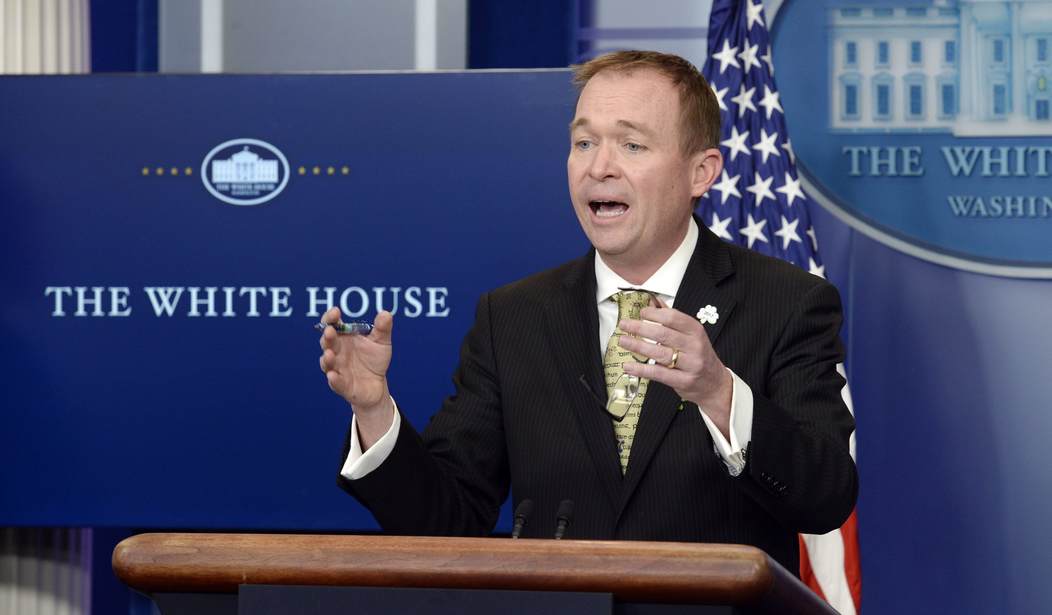WASHINGTON — White House budget director Mick Mulvaney defended the administration’s proposal to eliminate the $3 billion Community Block Development Grant program in the Department of Housing and Urban Development that funds, among other social services, Meals on Wheels.
“The federal government has spent over $150 billion on this block grant since its inception in 1974, but the program is not well-targeted to the poorest populations and has not demonstrated results,” says the budget blueprint.
Meals on Wheels America says one in six senior Americans “struggles with hunger,” and their consumer base consists of seniors who receive traditional daily meal delivery, ones who receive frozen meals once a week, and those on waiting lists. The need is highest in the southeast.
“The problem with a skinny budget is it is lean on details,” said Ellie Hollander, president and CEO of Meals on Wheels America. “So, while we don’t know the exact impact yet, cuts of any kind to these highly successful and leveraged programs would be a devastating blow to our ability to provide much-needed care for millions of vulnerable seniors in America, which in turn saves billions of dollars in reduced healthcare expenses.”
The Older Americans Act, with implementation through the Department of Health and Human Services, provides about 35 percent of funding for Meals on Wheels. The Trump budget proposal wants to cut HHS by 17.9 percent.
Meals on Wheels said need has outpaced federal funding, with 23 million fewer meals served now than in 2005 and waiting lists growing nationwide.
Mulvaney told reporters at the top of the White House press briefing that CBDG programs “have been identified as programs since I believe the first — actually the second Bush administration as ones that were just not showing any results.”
“We can’t do that anymore. We can’t spend money on programs just because they sound good. And great, Meals on Wheels sounds great. Again, that’s a state decision to fund that particular portion, to take the federal money and give it to the states, and say look, we want to give you money for programs that don’t work,” he continued.
“I can’t defend that anymore. We cannot defend that anymore. We’re $20 trillion in debt. We’re going to spend money. We’re going to spend a lot of money. But we’re not going to spend it on programs that cannot show that they actually deliver the promises that we made to people.”
Asked about after-school programs, particularly one in rural Pennsylvania that said it would no longer be able to serve 800 children if federal funding was eliminated, Mulvaney said there was no evidence that feeding underprivileged children helps them do better in school.
“They’re supposed to be educational programs, right? And that’s what they’re supposed to do, they’re supposed to help kids who can’t — who don’t get fed at home, get fed so that they do better at school. Guess what? There’s no demonstrable evidence they’re actually doing that. There’s no demonstrable evidence they’re actually helping results, helping kids do better at school,” Mulvaney said.
“But I don’t believe we cut all the funding for those types of things,” he added.
Asked by CNN’s Jim Acosta if theirs was a “hard-hearted” budget — “you were talking about the steelworker in Ohio and the coal miner in Pennsylvania and so on, but those workers, they have an elderly mother who depends on the Meals on Wheels program, who may have kids in Head Start,” the reporter noted — Mulvaney called the cuts “one of the most compassionate things we can do.”
“You’re only focusing on half of the equation, right? You’re focusing on recipients of the money. We’re trying to focus on both the recipients of the money and the folks who give us the money in the first place. And I think it’s fairly compassionate to go to them and say, look, we’re not going to ask you for your hard-earned money anymore, single mom of two in Detroit, OK? Give us your money. We’re not going to do that anymore,” he said. “Unless we can guarantee to you that that money is actually be used in a proper function. And I think that is about as compassionate as you can get.”









Join the conversation as a VIP Member